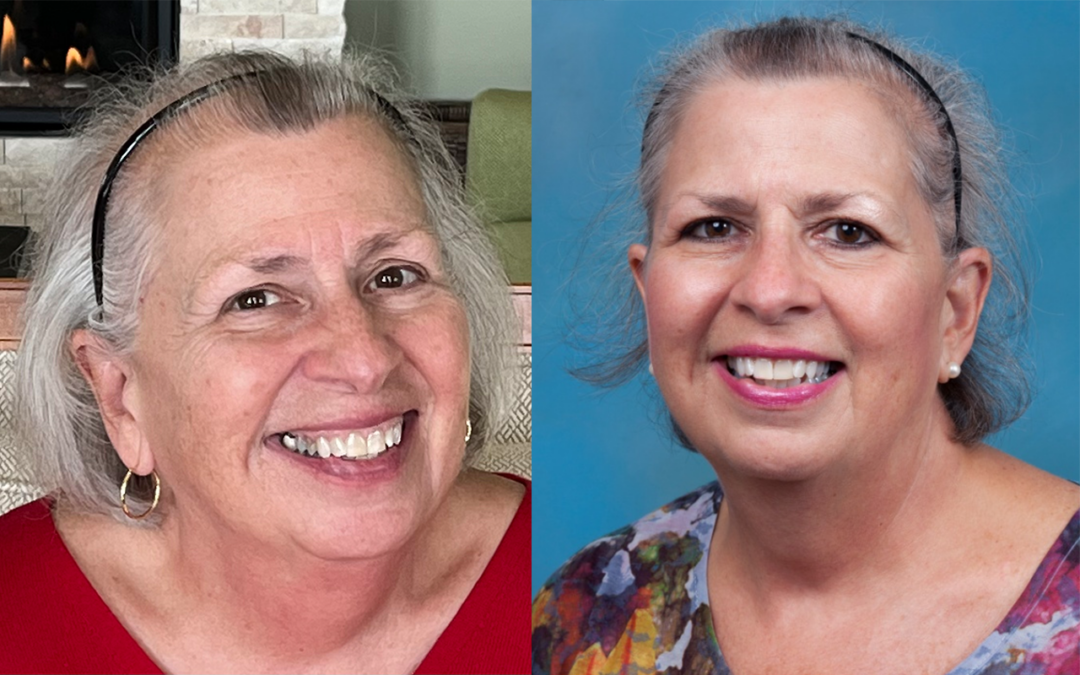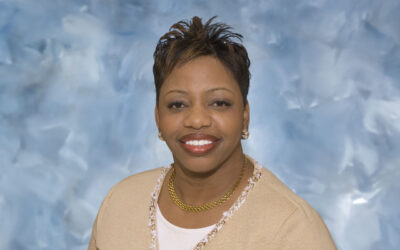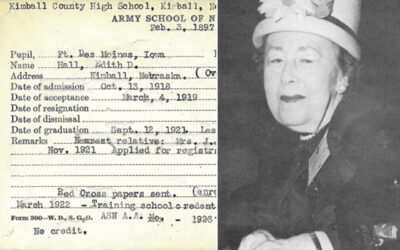
By Matt Skoufalos
Although JoAnn Coleman has dedicated the majority of her professional life to caring for surgical patients, she’d originally planned to enter the workforce as a secondary school teacher.
However, after graduating from Towson University with an education degree in 1972, Coleman struggled to find a teaching job in a crowded market. Her mother, who worked for Exxon at the time, told her about a program sponsored by her employer through which Coleman could transition into a career in health care. As she’d already been working weekends as a ward clerk at Bon Secours (now Grace Hospital) in downtown West Baltimore, Coleman had some limited familiarity with nursing experiences in the intensive care, emergency, and labor and delivery units. She was accepted into the Exxon program, which covered her tuition, books and uniform at Catonsville Community College.
While attending college part-time to earn her associate degree in nursing, Coleman continued working at Bon Secours; when a friend who worked at the Johns Hopkins Hospital told her they were hiring nursing technicians, Coleman applied, got the job, and was invited to stay with Hopkins after completing her program. Starting on a resident surgical floor, she saw a number of trauma patients and a variety of general surgery patients. For Coleman, who was fresh from school, the move was “a great learning experience,” connecting her to friends with whom she still corresponds, picking up information and opportunities that later shaped her career.
She worked for a full decade with her associate degree before returning to the College of Notre Dame of Maryland to earn a bachelor’s degree on a weekend program; from there, Coleman earned a master’s degree as a clinical nurse specialist at the University of Maryland School of Nursing, and took a position with the GI surgery service at Johns Hopkins under Chief of Surgery John Cameron, who held that position for nearly two decades.
“It was interesting because I always liked all the organs of the abdomen,” Coleman said. “I was never a heart person. I was not into orthopedics, neuro, or OB-GYN; I just liked the abdominal stuff the best, as I considered it more challenging.”
As a clinical nurse specialist under Cameron, a dedicated surgeon who helped to refine the original Whipple procedure – better known as the pancreaticoduodenectomy – Coleman had opportunities to care for patients with complex procedures.
“I was the first clinical nurse specialist to be attached to the GI surgery team of residents,” she said. “I would come in the morning and make rounds with them, but then I would help teach the nurses how to best care for patients with these complex surgeries. I was trusted by Dr. Cameron to see how patients were doing, and even made phone calls to check on patients before they came back for their follow-up appointments.”
Coleman spent another decade as a clinical nurse specialist, during which she leveraged her background in education, both in her practice as well as in completing a post-Master’s nurse practitioner degree at Johns Hopkins University School of Nursing.
Earning an adult primary care NP and then an acute care NP certification enabled her to work both inpatient and outpatient settings at the institution, including its adult acute care line of service. Coleman could see patients in outpatient consultation for surgery, and then follow them postoperatively after surgery as well as when they returned for post-discharge visits. She then decided to enroll in the first doctorate of nursing practice classes offered at Johns Hopkins University School of Nursing.
“In the interim, I saw that there were older and older patients coming into the hospital, so I completed a Masters in Adulthood and Aging at the College of Notre Dame of Maryland,” she said. “Then, I realized there were all kinds of legal issues with newer laparoscopy procedures, such as bile duct injuries in the broader medical field, so I decided to get my degree as a nurse paralegal.”
Coleman then spent another decade as an inpatient nurse practitioner, caring for patients on the floor, teaching nurses and occasionally getting called into the operating room to consult on specialty cases. Finally, after 37 years, she moved from Johns Hopkins Hospital to Sinai Hospital of Baltimore, where Coleman dedicated another eight years to launching the Center for Geriatric Surgery.
“We instituted a number of preoperative screening tools – such as mobility, cognition, frailty, polypharmacy, nutrition and others – so we could hopefully institute care that would prevent postoperative complications in the older surgical patient such as delirium,” Coleman said. “I was the only nurse performing the screens and collecting data.”
Today, Coleman has retired from nursing, but works as a reviewer for the Geriatric Surgery Verification Program (GSVP) at the American College of Surgeons (ACS). Leveraging her expertise in geriatrics and surgery, she began with ACS in 2015 on a four-year grant looking at improving care for geriatric surgery patients. In 2019, ACS launched the Geriatric Surgery Verification Program – and then the novel coronavirus (COVID-19) pandemic hit, pushing back hospitals ability to institute the standards set forth in the GSVP to become certified. Coleman has begun reviewing that backlog of hospitals that have elected to participate in the ACS review process. Most recently she has collaborated on a paper about informal caregiver burden for older surgical patients.
“Sixty-five and older is the fastest-growing area where I am at the moment,” she said. “There’s a lot written about informal caregivers for Alzheimer’s and stroke patients, but almost nothing about informal caregivers for older surgical patients.”
When she’s not at work, Coleman is still a committed learner, reading professional journals and attending nursing, surgical and geriatric conferences. She participates in two book clubs, works with stained glass art, and keeps her mind sharp with trivia contests and Mah Jong. Like many nurses, she also enjoys traveling. She is also very active in Gerontological Advanced Practice Nurses Association (GAPNA) as a member and speaker.
“When I graduated from nursing school, the first time I went on vacation, I promised myself I would go away every year no matter what,” Coleman said. “So, I’ve been all over the world.”










